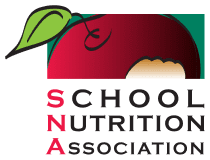SN Express
Sign up for SN Express, and we'll deliver a summary of the latest Association and school nutrition news to your e-mail account every Wednesday.
Tuesday Morning
Tuesday Morning is SNA's policy and awareness newsletter. Each Tuesday, this newsletter provides members with up-to-date federal legislative news, as well as current state legislative activity.
SNA SmartBrief
SNA SmartBrief is published by the editors of SmartBrief on behalf of SNA. Each weekday, receive a daily snapshot of school nutrition news from leading news sources across the country.
Industry Insider
Industry Members Only
Industry Insider is an e-newsletter designed especially for SNA industry members, providing them with the latest industry news, special announcements and important dates and deadlines.
State Agency Newsletter
State Agency Members Only
The State Agency Newsletter offers national, State agency-relevant policy and SNA news for this important member segment.
Sign Up for Newsletters
Sign up now for SN Express or Tuesday Morning to get the latest information.
